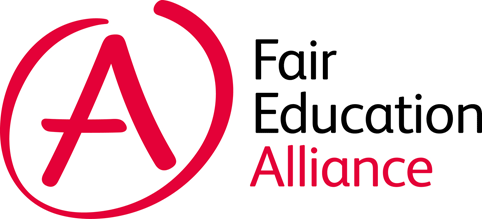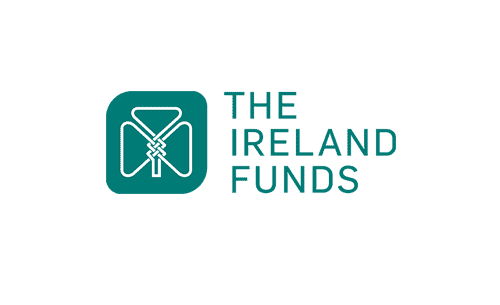Policies
The following policies are available:
- Safeguarding Policy
- Privacy Policy
Safeguarding Policy
Purpose
The purpose of this policy is to protect people, particularly children, at risk adults and beneficiaries of assistance, from any harm that may be caused due to their coming into contact with PARALLEL HISTORIES. This includes harm arising from:
- The conduct of staff or personnel associated with PARALLEL HISTORIES
- The design and implementation of PARALLEL HISTORIES’s programmes and activities
The policy lays out the commitments made by PARALLEL HISTORIES, and informs staff and associated personnel of their responsibilities in relation to safeguarding.
This policy does not cover:
- Sexual harassment in the workplace – this is dealt with under PARALLEL HISTORIES’s Anti Bullying and Harassment Policy
- Safeguarding concerns in the wider community not perpetrated by PARALLEL HISTORIES or associated personnel
What is safeguarding?
In the UK, safeguarding means protecting peoples’ health, wellbeing and human rights, and enabling them to live free from harm, abuse and neglect.
In our sector, we understand it to mean protecting people, including children and at risk adults, from harm that arises from coming into contact with our staff or programmes.
Further definitions relating to safeguarding are provided in the glossary below.
Scope
- All staff contracted by PARALLEL HISTORIES
- Associated personnel whilst engaged with work or visits related to PARALLEL HISTORIES, including but not limited to the following: consultants; volunteers; contractors; programme visitors including journalists, celebrities and politicians
Policy Statement
PARALLEL HISTORIES believes that everyone we come into contact with, regardless of age, gender identity, disability, sexual orientation or ethnic origin has the right to be protected from all forms of harm, abuse, neglect and exploitation. PARALLEL HISTORIES will not tolerate abuse and exploitation by staff or associated personnel.
This policy will address the following areas of safeguarding: child safeguarding, adult safeguarding, and protection from sexual exploitation and abuse. These key areas of safeguarding may have different policies and procedures associated with them (see Associated Policies).
PARALLEL HISTORIES commits to addressing safeguarding throughout its work, through the three pillars of prevention, reporting and response.
Prevention
PARALLEL HISTORIES responsibilities
PARALLEL HISTORIES will:
- Ensure all staff have access to, are familiar with, and know their responsibilities within this policy
- Design and undertake all its programmes and activities in a way that protects people from any risk of harm that may arise from their coming into contact with PARALLEL HISTORIES.This includes the way in which information about individuals in our programmes is gathered and communciated
- Implement stringent safeguarding procedures when recruiting, managing and deploying staff and associated personnel
- Ensure staff receive training on safeguarding at a level commensurate with their role in the organization
- Follow up on reports of safeguarding concerns promptly and according to due process
Staff responsibilities
Child safeguarding
PARALLEL HISTORIES staff and associated personnel must not:
- Engage in sexual activity with anyone under the age of 18
- Sexually abuse or exploit children
- Subject a child to physical, emotional or psychological abuse, or neglect
- Engage in any commercially exploitative activities with children including child labour or trafficking
Adult safeguarding
PARALLEL HISTORIES staff and associated personnel must not:
- Sexually abuse or exploit at risk adults
- Subject an at risk adult to physical, emotional or psychological abuse, or neglect
Protection from sexual exploitation and abuse
PARALLEL HISTORIES staff and associated personnel must not:
- Exchange money, employment, goods or services for sexual activity. This includes any exchange of assistance that is due to beneficiaries of assistance
- Engage in any sexual relationships with beneficiaries of assistance, since they are based on inherently unequal power dynamics
Additionally, PARALLEL HISTORIES staff and associated personnel are obliged to:
- Contribute to creating and maintaining an environment that prevents safeguarding violations and promotes the implementation of the Safeguarding Policy
- Report any concerns or suspicions regarding safeguarding violations by a PARALLEL HISTORIES staff member or associated personnel to the appropriate staff member
Enabling reports
PARALLEL HISTORIES will ensure that safe, appropriate, accessible means of reporting safeguarding concerns are made available to staff and the communities we work with.
Any staff reporting concerns or complaints through formal whistleblowing channels (or if they request it) will be protected by PARALLEL HISTORIES’s Disclosure of Malpractice in the Workplace (Whistleblowing) Policy.
PARALLEL HISTORIES will also accept complaints from external sources such as members of the public, partners and official bodies.
How to report a safeguarding concern
Staff members who have a complaint or concern relating to safeguarding should report it immediately to their Safeguarding Focal Point or line manager. If the staff member does not feel comfortable reporting to their Safeguarding Focal Point or line manager (for example if they feel that the report will not be taken seriously, or if that person is implicated in the concern) they may report to any other appropriate staff member. For example, this could be a senior manager or a member of the HR Team.
Response
PARALLEL HISTORIES will follow up safeguarding reports and concerns according to policy and procedure, and legal and statutory obligations (see Procedures for reporting and response to safeguarding concerns in Associated Policies).
PARALLEL HISTORIES will apply appropriate disciplinary measures to staff found in breach of policy.
PARALLEL HISTORIES will offer support to survivors of harm caused by staff or associated personnel, regardless of whether a formal internal response is carried out (such as an internal investigation). Decisions regarding support will be led by the survivor.
Confidentiality
It is essential that confidentiality in maintained at all stages of the process when dealing with safeguarding concerns. Information relating to the concern and subsequent case management should be shared on a need to know basis only, and should be kept secure at all times.
Glossary of Terms
Beneficiary of Assistance
Someone who directly receives goods or services from PARALLEL HISTORIES’s programme. Note that misuse of power can also apply to the wider community that the NGO serves, and also can include exploitation by giving the perception of being in a position of power.
Child
A person below the age of 18
Harm
Psychological, physical and any other infringement of an individual’s rights
Psychological harm
Emotional or psychological abuse, including (but not limited to) humiliating and degrading treatment such as bad name calling, constant criticism, belittling, persistent shaming, solitary confinement and isolation
Protection from Sexual Exploitation and Abuse (PSEA)
The term used by the humanitarian and development community to refer to the prevention of sexual exploitation and abuse of affected populations by staff or associated personnel. The term derives from the United Nations Secretary General’s Bulletin on Special Measures for Protection from Sexual Exploitation and Abuse (ST/SGB/2003/13)
Safeguarding
In the UK, safeguarding means protecting peoples’ health, wellbeing and human rights, and enabling them to live free from harm, abuse and neglect.
In our sector, we understand it to mean protecting people, including children and at risk adults, from harm that arises from coming into contact with our staff or programmes. One donor definition is as follows:
Safeguarding means taking all reasonable steps to prevent harm, particularly sexual exploitation, abuse and harassment from occurring; to protect people, especially vulnerable adults and children, from that harm; and to respond appropriately when harm does occur.
This definition draws from our values and principles and shapes our culture. It pays specific attention to preventing and responding to harm from any potential, actual or attempted abuse of power, trust, or vulnerability, especially for sexual purposes.
Safeguarding applies consistently and without exception across our programmes, partners and staff. It requires proactively identifying, preventing and guarding against all risks of harm, exploitation and abuse and having mature, accountable and transparent systems for response, reporting and learning when risks materialise. Those systems must be survivor-centred and also protect those accused until proven guilty.
Safeguarding puts beneficiaries and affected persons at the centre of all we do.
Sexual abuse
The term ‘sexual abuse’ means the actual or threatened physical intrusion of a sexual nature, whether by force or under unequal or coercive conditions.
Sexual exploitation
The term ‘sexual exploitation’ means any actual or attempted abuse of a position of vulnerability, differential power, or trust, for sexual purposes, including, but not limited to, profiting monetarily, socially or politically from the sexual exploitation of another. This definition incudes human trafficking and modern slavery.
Survivor
The person who has been abused or exploited. The term ‘survivor’ is often used in preference to ‘victim’ as it implies strength, resilience and the capacity to survive, however it is the individual’s choice how they wish to identify themselves.
At risk adult
Sometimes also referred to as vulnerable adult. A person who is or may be in need of care by reason of mental or other disability, age or illness; and who is or may be unable to take care of him or herself, or unable to protect him or herself against significant harm or exploitation.
Privacy Policy
Who we are
Our website address is: https://parallelhistories.org.uk
Comments
When visitors leave comments on the site we collect the data shown in the comments form, and also the visitor’s IP address and browser user agent string to help spam detection.
An anonymized string created from your email address (also called a hash) may be provided to the Gravatar service to see if you are using it. The Gravatar service privacy policy is available here: https://automattic.com/privacy/. After approval of your comment, your profile picture is visible to the public in the context of your comment.
Media
If you upload images to the website, you should avoid uploading images with embedded location data (EXIF GPS) included. Visitors to the website can download and extract any location data from images on the website.
Cookies
If you leave a comment on our site you may opt-in to saving your name, email address and website in cookies. These are for your convenience so that you do not have to fill in your details again when you leave another comment. These cookies will last for one year.
If you visit our login page, we will set a temporary cookie to determine if your browser accepts cookies. This cookie contains no personal data and is discarded when you close your browser.
When you log in, we will also set up several cookies to save your login information and your screen display choices. Login cookies last for two days, and screen options cookies last for a year. If you select “Remember Me”, your login will persist for two weeks. If you log out of your account, the login cookies will be removed.
If you edit or publish an article, an additional cookie will be saved in your browser. This cookie includes no personal data and simply indicates the post ID of the article you just edited. It expires after 1 day.
Embedded content from other websites
Articles on this site may include embedded content (e.g. videos, images, articles, etc.). Embedded content from other websites behaves in the exact same way as if the visitor has visited the other website.
These websites may collect data about you, use cookies, embed additional third-party tracking, and monitor your interaction with that embedded content, including tracking your interaction with the embedded content if you have an account and are logged in to that website.
Who we share your data with
If you request a password reset, your IP address will be included in the reset email.
How long we retain your data
If you leave a comment, the comment and its metadata are retained indefinitely. This is so we can recognize and approve any follow-up comments automatically instead of holding them in a moderation queue.
For users that register on our website (if any), we also store the personal information they provide in their user profile. All users can see, edit, or delete their personal information at any time (except they cannot change their username). Website administrators can also see and edit that information.
What rights you have over your data
If you have an account on this site, or have left comments, you can request to receive an exported file of the personal data we hold about you, including any data you have provided to us. You can also request that we erase any personal data we hold about you. This does not include any data we are obliged to keep for administrative, legal, or security purposes.
Where we send your data
Visitor comments may be checked through an automated spam detection service.






